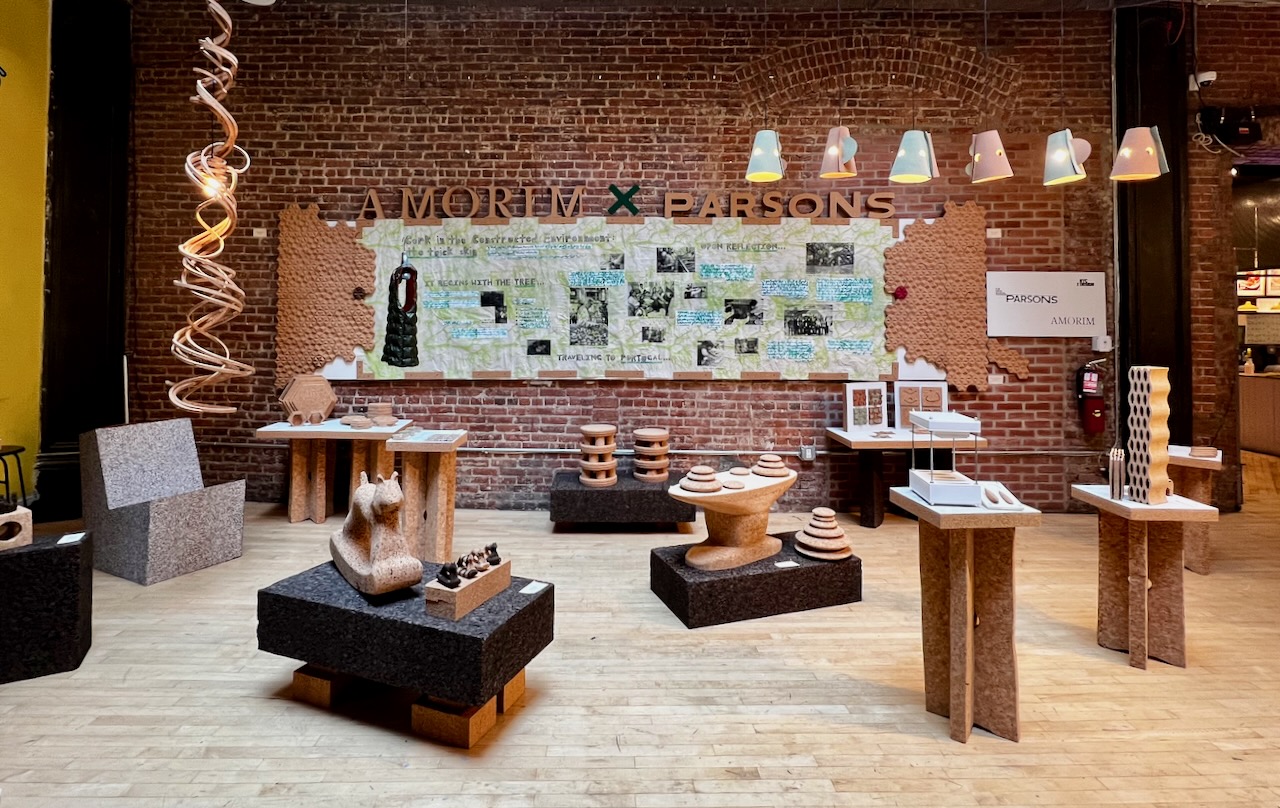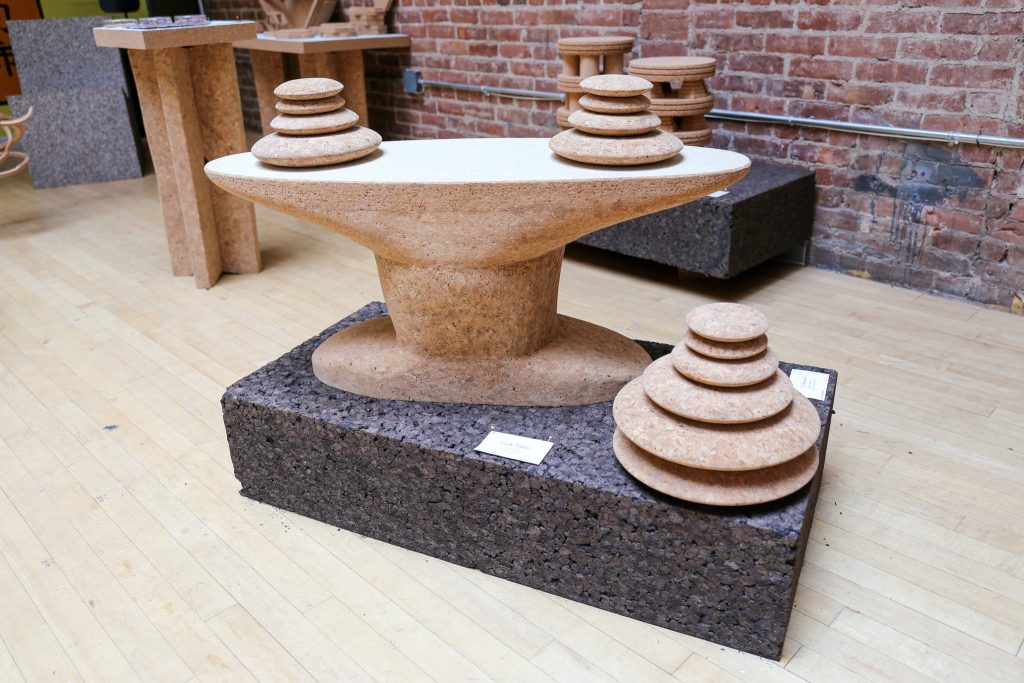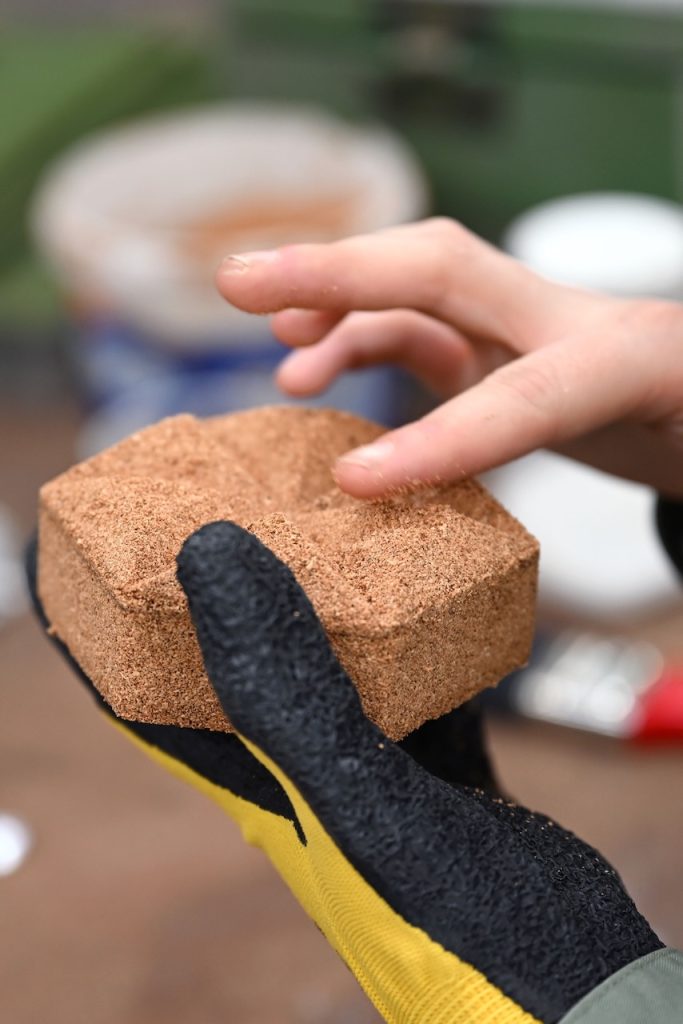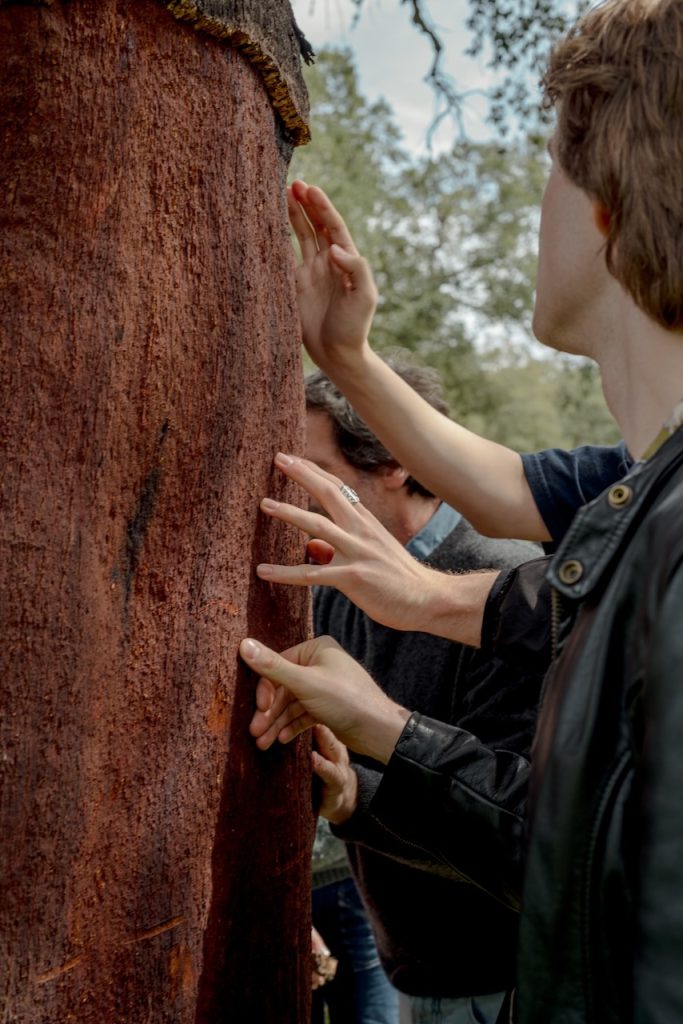
Parsons and Amorim Cork Create Partnership to Develop the Future of Cork Products in Design
When consumers look at items that have been designed sustainability, they typically assume a piece of the final product was recycled, or that the product incorporates sustainable materials into some aspect of the design.
For a recent partnership with the Portugal-based Amorim Cork this past Spring, students in the School of Constructed Environments at Parsons worked with a material that is already completely sustainable in order to develop prototypes that were then exhibited in a gallery show as part of NYCxDesign 2023.
Daniel Michalik, Assistant Professor of Product and Industrial Design, began working with Amorim 15 years ago, primarily as a partner in material supply and production for his own studio’s products. His relationship with the company led to the collaboration with Parsons, which took the form of an undergraduate elective course, open to all SCE students and disciplines, as well as students from Integrated Design.
“Cork is a material full of untapped potential for design and construction, but it also turns the conventional human/nature relationship on its head, into something much healthier and emblematic of how we should relate to nature as a material source in general,” explains Michalik. “Moreover, on the industrial side, cork is a circular material. “Waste” in manufacturing is endlessly recycled into new products. Cork has extremely effective properties in terms of insulation, fire resistance, compressibility, and can be used as a building material for furniture, buildings and more, so it represents a massive, untapped material opportunity.”
The semester-long course began with students experimenting in the Making Center with cork that had been donated by Amorim in 2019, where they got to know the material better, and applied their existing knowledge as designers to an unfamiliar material. Then, they traveled to Portugal during spring break for a week in Amorim’s “iCork” material development lab, which is connected to the company’s factories. Finally, students exhibited their prototypes during NYCxDesign, where they worked in teams to design the concept for the exhibition, and prepare and install the space.


“This project was innovative not only in how students learned about a new material, but from a curricular standpoint as well,” shares Michalik. “The class was decentralized, taught in discrete phases, with classes happening on campus, in a factory, in a forest, and in a public exhibition. Students pushed the limits of technology on campus for global application (for example, creating molds in the Making Center’s Haas CNC to be used in the Amorim factory in Portugal) as a means towards social engagement, sharing the fruits of their experiments with a global design audience.”
For both Michalik and the wider Parsons community, the partnership with Amorim highlights the transformative power of design. Cork is a wood-like material, but rather than felling a tree and depleting forests to obtain it, the material is stripped from trees, which allows the tree to be cared for, and growth to increase. With increased forest growth come vast benefits, including carbon sinking, root systems that protect soil health, habitat protection, and more.
“This partnership showcases the way humans can and should approach material use in the practices of architecture, interiors, and industrial design,” says Michalik.
A core component of the Parsons educational approach is collaborating with external partners, which gives students the opportunity to work with other designers, achieve specific design goals, and take their ideas out of the classroom and into the real world.



“Partnerships like this replicate the conditions of being a designer in industry,” says Michalik. “The sheer depth of learning that I witnessed with students working in the factory, or among the trees from which their materials come and having the immediacy of experience of a material cycle was astounding, and would have been impossible without a partnership like this one.”